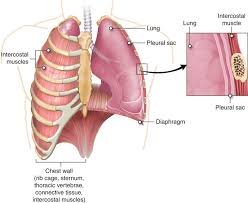Pulmonary rehab is a specialized program designed to help individuals with lung conditions improve their respiratory function and overall quality of life. This form of therapy targets those experiencing chronic respiratory diseases such as chronic obstructive pulmonary disease (COPD), asthma, or pulmonary fibrosis. The goal is to strengthen lung capacity, enhance breathing efficiency, and reduce symptoms that limit daily activities. Programs focus on exercise training, education, and support to assist patients in managing their lung health effectively. A structured approach guides individuals through breathing exercises, physical conditioning, and lifestyle changes that support respiratory wellness.
Who Can Benefit From Pulmonary Rehab?
Patients with chronic lung diseases often face breathlessness, fatigue, and reduced physical endurance. These symptoms may interfere with work, hobbies, or social interactions. Pulmonary rehab provides tailored care to address these challenges. Individuals recovering from lung surgery or severe respiratory infections can also benefit from this therapy. By rebuilding strength and endurance, rehab helps patients regain independence and improve their ability to complete routine tasks. Physicians typically recommend rehab for patients who show persistent symptoms despite medication or oxygen therapy. Early intervention can prevent further decline in lung function and improve long-term outcomes.
What are Key Components?
Pulmonary rehab includes several core elements aimed at enhancing respiratory health. Exercise training is a primary focus. Under supervision, patients engage in activities that improve muscle strength, cardiovascular fitness, and breathing techniques.
Education about lung health and self-management strategies plays a major role. Patients learn to recognize symptom changes, use inhalers correctly, and avoid triggers that worsen their condition. Nutritional counseling and psychological support are often included to promote overall well-being. Teams typically involve respiratory therapists, physical therapists, nurses, and doctors. This interdisciplinary approach ensures that all aspects of lung health are addressed comprehensively.
How Does it Improves Lung Strength?
Regular exercise within pulmonary rehab programs increases the efficiency of oxygen use by the body. Strengthening respiratory muscles makes breathing less laborious and reduces shortness of breath during activity. Training also improves endurance, allowing patients to engage in daily tasks with less fatigue. Controlled breathing techniques taught in rehab help manage episodes of breathlessness and anxiety related to lung disease. These benefits contribute to better lung function tests and higher activity tolerance. Improved lung strength can slow the progression of chronic diseases and reduce hospital visits.
What are Long-Term Impacts?
Pulmonary rehab offers more than immediate symptom relief. It encourages lasting lifestyle changes that support lung health. Patients often adopt regular physical activity and healthier habits that improve overall fitness. The program also helps reduce feelings of isolation or depression that can accompany chronic lung illness. Group sessions and counseling provide emotional support and motivate patients to maintain progress. Ongoing follow-up after completion helps patients sustain improvements. Maintenance programs or periodic evaluations ensure that lung health remains stable.
Some patients may face barriers such as transportation, cost, or physical limitations that affect participation. Clinics offering this often provide resources to overcome these obstacles, including telehealth options or financial assistance programs. Adherence to the program is essential. Success depends on consistent participation and application of learned skills in daily life. Healthcare providers work closely with patients to address concerns and adapt therapy as needed.
Consult Your Healthcare Provider
If you experience chronic lung symptoms or have been diagnosed with a respiratory disease, discussing rehab with your healthcare provider is advisable. Early evaluation helps determine whether it fits your treatment plan. A referral to a center allows for personalized assessment and program enrollment. Tailored therapy supports improved lung strength, symptom control, and quality of life.

